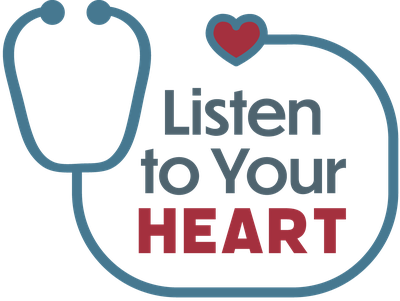
Eat healthy, exercise regularly and don't smoke — these are the tried-and-true ways to keep your ticker in tip-top shape. But beyond getting your veggies and hitting the gym, there are other preventive measures you can take to help lower your risk of developing heart-related diseases.
Here, John P. Higgins, MD, a sports cardiologist and professor of cardiovascular medicine at The McGovern Medical School at The University of Texas Health Science Center at Houston (UTHealth), shares five surprisingly simple everyday strategies to ensure your heart is functioning at its best.
Video of the Day
Video of the Day
1. Home In on Oral Hygiene
Sure, flossing and brushing are important to prevent bad breath and cavities, but these healthy dental habits also may be beneficial for your heart.
Believe it or not, "research suggests that brushing your teeth twice a day for at least two minutes may lower the risk of cardiovascular diseases," Dr. Higgins says. Indeed, a December 2019 study published in the European Journal of Preventive Cardiology found a correlation between proper oral hygiene care and a decreased probability of atrial fibrillation and heart failure.
But why? Scientists theorize that poor oral hygiene can lead to bacteria in the bloodstream, infections and systemic inflammation, which is at the core of heart disease.
Related Reading
2. Adopt a Pet

Not just adorable and cuddly, four-legged furry friends may also boost your heart health. Indeed, people who own pets report feeling happier, plus they're less likely to smoke or have diabetes, Dr. Higgins says.
In particular, dog owners tend to live longer and cope better after a heart attack or stroke compared to their counterparts without canine companions, according to an October 2019 meta-analysis published in Circulation: Cardiovascular Quality and Outcomes.
Dr. Higgins also points to other research that associated dog ownership with lower blood pressure. That's likely because pooches need to be walked, so their owners are inclined to be more physically active, logging a greater number of steps each day. Plus, dogs provide social support and help relieve loneliness, which all contribute to overall good health.
3. Don’t Skimp on Sleep
Not catching enough zzzs can also hurt you in the heart department.
"Poor sleep quantity and quality is associated with obesity, unhealthy dietary choices, diabetes, elevated cholesterol and hypertension, which are risk factors for stroke and coronary artery disease," says Dr. Higgins, who adds that adults should aim for seven to nine hours of sound slumber per night.
"Adhering to a natural circadian rhythm is important too," he says. If you struggle to get good sleep, try getting yourself on a consistent schedule, where you go to bed and wake up at the same time each day. Getting into a groove like this may help your body settle into deep sleep more efficiently.
And there's evidence it benefits your ticker. Older adults who didn't have a consistent sleep schedule — aka they had irregular bedtime and wake-up times, or different amounts of sleep each night — were nearly twice as likely to develop cardiovascular disease as those with regular sleep patterns in a March 2020 study of almost 2,000 people in the Journal of the American College of Cardiology.
What time you go to bed might matter, too. A November 2021 study in European Heart Journal: Digital Health looked at more than 100,000 people and found that those who turned in between 10 and 11 p.m. had a lower risk of heart disease than people who went to bed earlier or later. This study was observational, though, so it only shows correlation, not causation.
Get better shut-eye by avoiding these 10 common habits that ruin sleep.
4. Laugh a Lot

It turns out that laughter really is the best medicine, especially when it comes to maintaining a healthy heart.
"Laughing is associated with improved vascular function and lower blood pressure, plus studies suggest that laughter can reduce artery inflammation, increase HDL (good) cholesterol and decrease stress hormones," Dr. Higgins says.
Managing stress is particularly important when it comes to heart health. That's because chronic stress can elevate your blood pressure and cholesterol levels, which in turn raises your odds of developing cardiovascular disease, per the American Heart Association.
Consider this your excuse to book tickets for that comedy show or queue up the latest Netflix rom-com.
5. Avoid Air Pollution
Polluted air not only harms the environment but damages your heart, too. Over time, breathing in particulates (tiny particles that float in polluted air) can increase your risk of blood clots, raise your blood pressure, cause inflammation in your blood vessels, harden your arteries and lead to an irregular heartbeat — all of which can elevate your chances of heart attack and stroke, according to the Centers for Disease Control and Prevention (CDC).
So, how can you protect your ticker? The CDC recommends you start by checking your local air quality index. When the air quality is poor, limit the time you spend outdoors and avoid exercising that involves heavy breathing. Instead of running in the park, for example, log some low-key miles on a treadmill at the gym.
Also, consider investing in an air purifier, which can reduce the number of dangerous air particles by as much as 50 percent.
6. Consider a Hot Bath

It sounds too good to be true, but regular soaks in the tub may do more than relax you — they could be a boon for your ticker, too.
Researchers in an observational study that included some 30,000 people found that a daily hot bath was linked to a lower risk of death from heart disease and stroke. Their findings were published March 2020 in the journal Heart.
It's important to note that the research found correlation, not causation, but it built on previous research linking heat exposure to heart disease prevention, with the idea being that the effects of heat on the body are similar to those of exercise. Specifically, tub bathing seemed to lower the risk of high blood pressure, which is a key risk factor for heart disease.
Warning
The study also noted the risk of sudden death associated with hot baths. Overheating may lead to confusion and drowning, and this risk increases with age and water temperature.
- European Journal of Preventive Cardiology: “Improved oral hygiene care is associated with decreased risk of occurrence for atrial fibrillation and heart failure: A nationwide population-based cohort study.”
- National Sleep Foundation: “How Sleep Deprivation Affects Your Heart.”
- Centers for Disease Control and Prevention: “Unhealthy Air, Unhealthy Heart.’”
- American Heart Association: “Stress and Heart Health.”
- Circulation: Cardiovascular Quality and Outcomes: “Dog Ownership and Survival After a Major Cardiovascular Event: A Register-Based Prospective Study.”
- Journal of the American College of Cardiology: "Actigraphy-measured Sleep Regularity and Risk of Incident Cardiovascular Disease: The Multi-Ethnic Study of Atherosclerosis"
- Heart: "Habitual tub bathing and risks of incident coronary heart disease and stroke"
- European Heart Journal: Digital Health: "Accelerometer-derived sleep onset timing and cardiovascular disease incidence: a UK Biobank cohort study"
Is this an emergency? If you are experiencing serious medical symptoms, please see the National Library of Medicine’s list of signs you need emergency medical attention or call 911.
